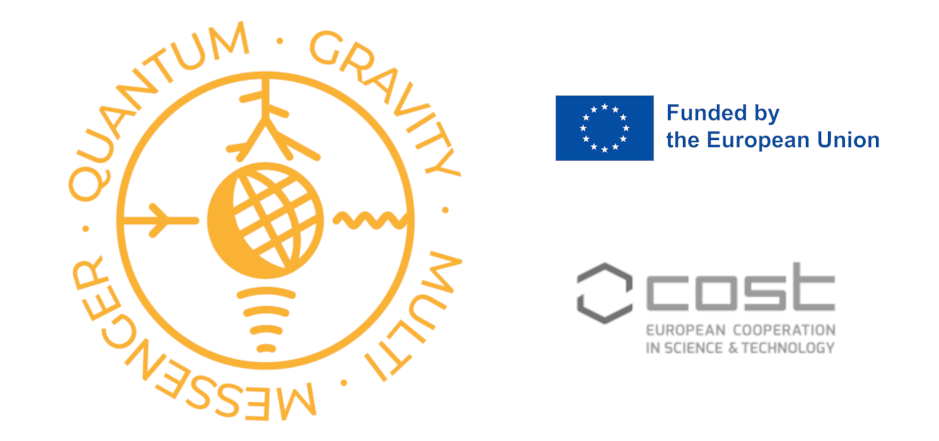
Belgrade, Serbia and Pałac Wojanów (Jelenia Góra), Poland
published January 22, 2025
Quantum Gravity Phenomenology in the Multi-Messenger Approach (QG-MM, https://qg-mm.unizar.es/) is an initiative with a goal to investigate possible signatures predicted by quantum gravity models in the observation of different cosmic messengers, such as gamma rays, neutrinos, cosmic rays and gravitational waves. The success of such endeavor requires a close collaboration of scientists from very different backgrounds, ranging from experimentalists specialized in data collection and analyses for specific cosmic messengers, to theorists working on different quantum gravity models.
A fundamental ingredient to make such cooperation effective is to share a common language and be familiar with the tools used by the different communities. This is where the role of the schools comes in as fundamental: their goal is to start training a generation of young scientists in the interdisciplinary expertise on quantum gravity theories and models and on experimental and theoretical approaches to multi-messenger astroparticle physics.
As such, the different editions of the Training School offer lectures from experts on different facets of the scientific gear the students will acquire, including data analysis and interpretation for individual sources, the creation and analysis of joint datasets of different cosmic messengers, the interplay between quantum gravity theory modeling and phenomenological predictions.
These were the second and third in a series of Training Schools organized by QG-MM. The third school was held jointly with the 59th edition of the Winter School of Theoretical Physics.
The lecture notes from the first Training School have been published in https://pos.sissa.it/406/#session-4469.
The schools are aimed at Master and PhD students, as well as early-career postdocs.
This publication is based upon work from COST Action CA18108 "Quantum Gravity Phenomenology in the Multi-Messenger Approach", supported by COST (European Cooperation in Science and Technology). COST (https://www.cost.eu/) is a funding agency for research and innovation networks. COST Actions help connect research initiatives across Europe and enable scientists to grow their ideas by sharing them with their peers. This boosts their research, career and innovation.
Editorial Board
- Jose Manuel Carmona
U. de Saragoza - Armando di Matteo
INFN, Sezione di Torino - Marija Dimitrijević Ćirić
University of Belgrade (Serbia) - Goran S. Djordjević
Faculty of Sciences and Mathematics, University of Niš, Serbia - Remigiusz Durka
University of Wrocław (Poland) - Rodrigo Gracia Ruiz
IPHC, Strasbourg (France) - Giulia Gubitosi
University of Naples Federico II - Nikola Konjik
Faculty of Physics, University of Belgrade - Jerzy Kowalski-Glikman
Institute for Theoretical Physics, University of Wroclaw, Poland; National Centre for Nuclear Research, Warsaw, Poland - Milan Milošević
Faculty of Sciences and Mathematics, University of Niš, Serbia - Carlos Pérez de los Heros
Dept. of Physics and Astronomy, Uppsala University, Box 516, SE-75120 Uppsala, Sweden - Christian Pfeifer
University of Bremen, ZARM - Giacomo Rosati
IFT Wroclaw University - Tomislav Terzić
University of Rijeka, Department of Physics - Tomasz Trześniewski
University of Wrocław (Poland)

| Sessions |
|---|
| Preface |
| Second Training School |
| Third Training School |
| Preface |
|---|
|
Foreword
|
| Second Training School |
|
Effective field theories and the Standard Model extensions
|
|
The physics of gravitational waves
|
|
Gamma-ray data collection, calibration and analysis for Lorentz invariance violation studies
|
|
Black holes in the classical and quantum world
|
|
Detection and phenomenology of cosmic neutrinos
|
|
Observational cosmology
|
|
Introduction to noncommutative field and gauge theory
|
| Third Training School |
|
Quantum gravity phenomenology at the dawn of multi-messenger astronomy
|
|
Search for Lorentz Invariance Violation with time-lag on gamma-ray Cherenkov Telescope data : From the data to the time lag constraints
|
|
Cornering quantum gravity
|
|
Astrophysical black holes: theory and observations
|
|
Modified gravity theories
|
|
Cosmology: observations
|
